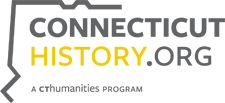CT Humanities’ Intellectual Property policy:
- Requires that content produced with CTH grant funds be made available at low or no cost to the public;
- Ensures that all rights for content created with CTH funding be held by grantee organizations by default;
- Reaffirms that CTH does not look to profit from or receive royalties from CTH funded projects;
- Encourages organizations around the state to craft and adopt similar intellectual property policies at their own institutions;
- Promotes the open sharing of content created with CTH funding through Creative Commons Licenses.
CT Humanities will implement the principles of the IP policy across our digital products, including ConnecticutHistory.org and TeachItCT. We are also offering educational opportunities in collaboration with Creative Commons, as well as convening a working group of knowledgeable individuals from the cultural heritage community to act as a resource for the sector in Connecticut.
You can download a PDF of the policy as well as a copy of the policy explainer document for further details.
Connecticut Humanities (CT Humanities) funds projects and initiatives using public money that regularly produce tangible products, such as exhibits (physical and digital), curricula, film or television documentaries, lectures, research, or data sets (“Grant Funded Products”). CT Humanities expects grantees to use grant funds in ways that advance and support the interests of our grantees, as well as CT Humanities’ mission to champion the enduring value of humanities in our lives and civil society.
CT Humanities seeks to maximize the use and reach of Grant Funded Products created with funds from our competitive grant lines (Quick Grants, Planning Grants, Implementation Grants, Capacity Grants, and Partnership Grants) to broaden the impact of both our work and the work of our grantees. CT Humanities encourages broad dissemination of and equitable access to Grant Funded Products at no or minimal cost to the public or, when justified, at a reasonable price. Distribution at a reasonable fee may be justified when integral to an organization’s business plan and sustainability. CT Humanities does not seek ownership rights or any percentage of sales from past or future Grant Funded Products.
Grant Funded Products intended for public display or dissemination should be licensed under a proper Creative Commons (CC) license or other similar licensing that provides for wide distribution or access to the public. CT Humanities supports and encourages licensing Grant Funded Products using a CC license that is considered appropriate for Free Culture Works. Free Cultural Works are most readily used, shared, and remixed by others and go furthest toward creating a commons of freely reusable materials while also protecting the rights of the owner of the Grant Funded Product.
CT Humanities recognizes there may be circumstances where limited dissemination of or access to Grant Funded Products may be appropriate to protect the legitimate interests of the grantee, other funders, or other documented reasons. CT Humanities will evaluate circumstances for delayed dissemination beyond the grant award period on a case-by-case basis.
Grantees should not use ownership of intellectual property rights to limit or deny access to Grant Funded Products that would result in the exclusive use of the Grant Funded Products or creating revenue that is not essential to the sustainability of an organization. Copyright to the Grant Funded Products will ordinarily remain with the grantee. Still, CT Humanities will be granted a – royalty-free, non-exclusive license to promote and share the impactful work of our grantees.
CT Humanities recognizes that different projects have different intellectual property features. However, we are committed to our intellectual property goals and applying this policy’s terms consistently among our grantees.
Recipients of CT Humanities competitive grant funds should have or are encouraged to craft policies consistent with the underlying philosophy and principles reflected in this policy.
CT Humanities recognizes that fast-evolving technological advances influence the manner and method by which knowledge can be protected and distributed. As a result, this policy will be reviewed periodically to ensure our standards meet the realities of the current technological landscape.
Adopted October 27, 2022. Last Revised October 27, 2022.





